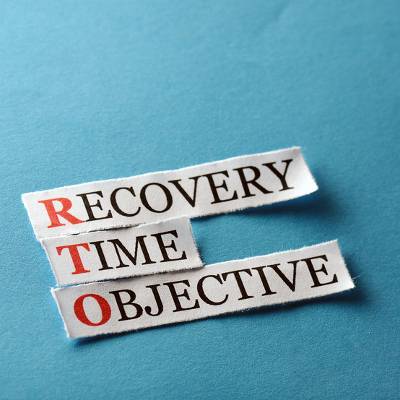Have any question?
Text or Call (954) 573-1300
Text or Call (954) 573-1300
Let me ask you this: does your business have a dedicated data backup and disaster recovery system? If not, we need to talk. A comprehensive backup and disaster recovery platform (BDR) can turn out to be one of the most critical parts of managing a business’ IT infrastructure. By having a plan to turn to in the event a serious problem such as ransomware or a natural disaster descends upon your business, you can be better prepared.
Data loss is no joke - and we’ve heard plenty of stories from people who have experienced it firsthand, when personal or business data was lost. We appreciate everyone who shared their experiences with us, and allowed us to post them here. First, we’ll tell the story of someone who learned something in college that wasn’t in the syllabus.
Don’t forget to share your own stories with us in the comments!
Managed services offer businesses an improved means of obtaining and managing the technology they rely on. With data being so important to the modern business, much of this technology is devoted to storing, securing, and leveraging this data. Working with a managed service provider can help a business get the most value out of their data management practices. Let’s go over how.
Your business relies on its data to succeed, which lends itself to the fact that your organization needs to have some sort of security measures put into place to guarantee its safety. 2018 is thought to be the year of ransomware, so it stands to reason that your business should prepare to deal with it. One of the best ways to deal with ransomware is to make sure that your company has a plan to restore data affected by said ransomware.
Nobody ever wants to admit that their business has a problem with security. Unfortunately, as the one responsible for the future of your organization, you have to consider all possible outcomes of any potential data loss incident. Furthermore, many of these incidents are beyond your control. Thankfully, you can soothe the pain of a data loss disaster by thinking ahead and planning for the worst.
Especially with so many people claiming to be tech-savvy, asking a question about IT can be a bit nerve wracking. Because of this hesitation, there are a lot of people who don’t ask questions about technology because they feel like their questions might be stupid. For example, having an updated operating system is a term that is tossed around a lot by IT professionals, and even some not-so-professionals.
Data backup. It’s something that all businesses need, but not all businesses know how to approach the implementation of it. This is largely due to the tendency to underestimate how disastrous data loss scenarios can be for their business. You know how it goes; it’s impossible, until it happens. Thankfully, you can significantly reduce the damage done by data loss incidents with a little bit of preventative, proactive thought and a comprehensive backup system.
No business owner wants to experience data loss in any way, shape or form, which is why it’s so crucial that preventive measures are taken. If you don’t have protections in place, you may find yourself out of business due to a data loss disaster. While that’s certainly the worst-case scenario, the other consequences of data loss are downright troublesome in their own right.
No business owner likes to think about it, but every business needs to be prepared for the possibility of their data disappearing. Have you taken steps to ensure that, should some disaster strike, you will be prepared to dust yourself off and continue operations? Furthermore, are you sure that your preparations will be sufficient and your data will be preserved?
 Preparing your business for disaster recovery is a difficult task, and certainly one that shouldn’t be taken lightly. There are so many variables that need to be taken into consideration before implementing a solid, fool-proof plan. Here are three questions you should ask yourself when considering the state of your current backup and disaster recovery solution, or preparing to implement a new one.
Preparing your business for disaster recovery is a difficult task, and certainly one that shouldn’t be taken lightly. There are so many variables that need to be taken into consideration before implementing a solid, fool-proof plan. Here are three questions you should ask yourself when considering the state of your current backup and disaster recovery solution, or preparing to implement a new one.
Nobody likes thinking or talking about this (except maybe if you are in the insurance business), but businesses are fragile entities. Enough hardship and loss will greatly weaken the foundation that keeps the business running smoothly. What if your business suffered from a fire, devastating flood, or even a misfortunate bolt of lightning that destroys your server? Would you be able to pick up the pieces and start over?
 Every business owner knows how important data backup is to their company's continuity plan, and they realize that a disaster recovery solution can help save them in the event of catastrophe. However, some businesses think they are the same thing, and they are sadly mistaken. While they are similar, a backup is not a disaster recovery solution.
Every business owner knows how important data backup is to their company's continuity plan, and they realize that a disaster recovery solution can help save them in the event of catastrophe. However, some businesses think they are the same thing, and they are sadly mistaken. While they are similar, a backup is not a disaster recovery solution.
 It’s the goal of every IT administrator for every part of their network to run smoothly. Achieving this level of IT perfection is a beautiful thing that makes the job of everyone in the company easier. Unfortunately, all it takes is one component to fail for this dream of IT utopia to come crashing down.
It’s the goal of every IT administrator for every part of their network to run smoothly. Achieving this level of IT perfection is a beautiful thing that makes the job of everyone in the company easier. Unfortunately, all it takes is one component to fail for this dream of IT utopia to come crashing down.
 Your business relies on its IT to get things done, but if disaster were to strike, would you be able to recover efficient operations without having to deal with the numerous headaches that are associated with downtime? Even if you have instituted a reliable backup solution, your business could still be hurting if your backup failed. Here’s how you troubleshoot this scenario.
Your business relies on its IT to get things done, but if disaster were to strike, would you be able to recover efficient operations without having to deal with the numerous headaches that are associated with downtime? Even if you have instituted a reliable backup solution, your business could still be hurting if your backup failed. Here’s how you troubleshoot this scenario.
 2015 isn’t the year to go without backups. If there’s anything 2014 showed the world, it’s that businesses can fall victim to data breaches when they least expect it. You want to be prepared in the event of a data breach or data loss, and the easiest way to do that is by taking advantage of an external backup. Unfortunately, even an essential solution like data backup can be forgotten amidst the everyday operations of the average business owner.
2015 isn’t the year to go without backups. If there’s anything 2014 showed the world, it’s that businesses can fall victim to data breaches when they least expect it. You want to be prepared in the event of a data breach or data loss, and the easiest way to do that is by taking advantage of an external backup. Unfortunately, even an essential solution like data backup can be forgotten amidst the everyday operations of the average business owner.
 You’re walking your dog when all of a sudden, you get this game-changing idea for how to manage your technology. You get excited to integrate it into your IT strategy, but by the time you get home, the thought is gone and you can’t remember it. This “Eureka” moment is just like data loss; it could occur at any time, and without warning, whether you’re ready for it or not.
You’re walking your dog when all of a sudden, you get this game-changing idea for how to manage your technology. You get excited to integrate it into your IT strategy, but by the time you get home, the thought is gone and you can’t remember it. This “Eureka” moment is just like data loss; it could occur at any time, and without warning, whether you’re ready for it or not.
 There are several factors at work when scoping out your current network security situation. According to a study from 1&1, 67 percent of people confirmed that someone they know has had information stolen from them while online, which means that your business could be next. In order to remain one of the few unaffected by security breaches, consider these three network security features for your business.
There are several factors at work when scoping out your current network security situation. According to a study from 1&1, 67 percent of people confirmed that someone they know has had information stolen from them while online, which means that your business could be next. In order to remain one of the few unaffected by security breaches, consider these three network security features for your business.
Learn more about what L7 Solutions can do for your business.
L7 Solutions
7890 Peters Road Building G102,
Plantation, Florida 33324